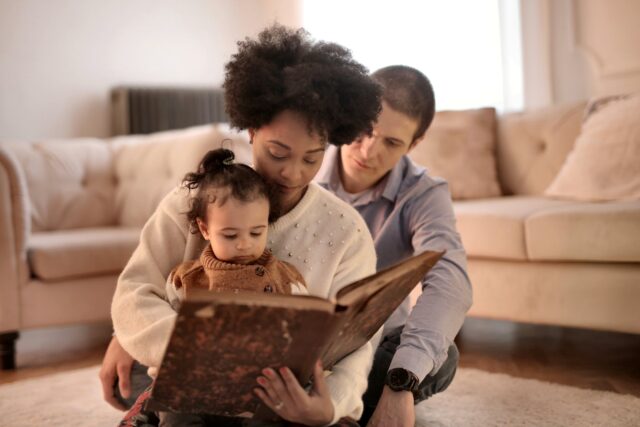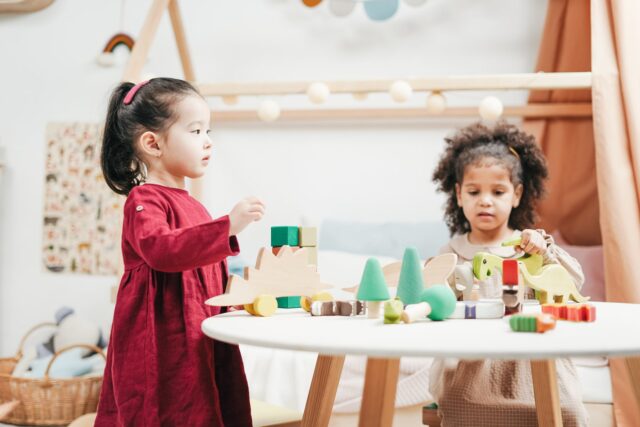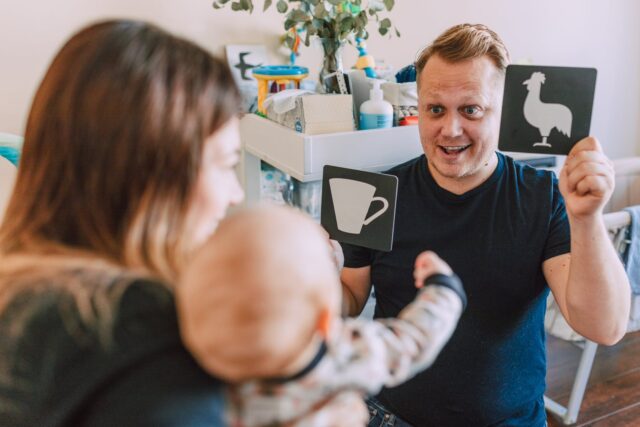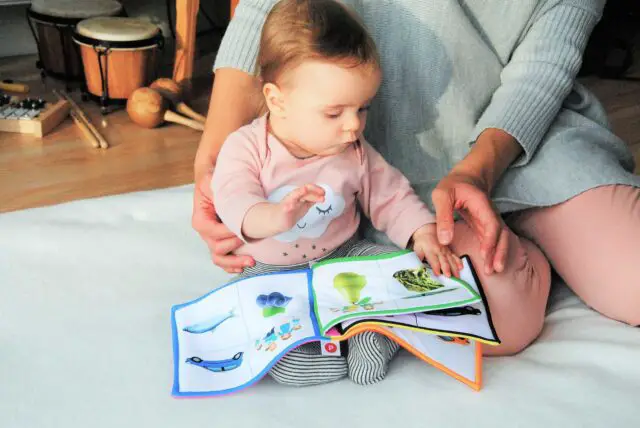According to research about infant brain development, a kid’s potential to do well in school is formed throughout their early years. Babies that have the correct early learning experiences tend to grow up with superior focus, behavior, perception, memory, and coordination.
Early learning can help your kid prepare and do better in school as well as develop a desire for learning. Therefore, as a parent, or a caregiver you should focus on teaching your little one the basics of life from his very first days.
In this article, we are going to cover the 3 best practices of baby learning.
Teaching Language & Literacy

Examine your baby’s facial expressions, noises, and movements to see how he or she interacts with you. All of these activities may be used to help your youngster learn more about spoken and written words.
You are also not required to “teach” your child. Classes designed for newborns and toddlers may not necessarily aid in brain development or improve academic performance. Furthermore, they may have a negative impact on the child’s feeling of self-confidence if they do not understand the skills they are being taught.
You may be surprised but language and literacy are best taught via ordinary activities. You may make your baby giggle, chat to him, read books, sing songs and show him what’s on TV or around. You may play with toys together or simply stroll outside and enjoy the fresh air.
Also, babies develop reading abilities early on when they are given the chance to play with and investigate the materials such as crayons, paper, baby books, newspapers, or catalogs.
Inspiring Self Confidence

When a baby feels secure and free to wander around, knowing that a loved one is always around, they gain confidence in their abilities to explore. Your infant moving away from you for limited periods of time is a little first step toward independence. For a few moments, your child is OK without you because they know you will be there for them if they need you.
Here are some strategies to inspire confidence in your children when they begin to crawl:
- As your child crawls, follow behind them or keep an eye on them, ensuring their safety while encouraging them to go forth and explore. For extra encouragement, you can try introducing a few toys to help get them moving! You can find a great write-up here!
- Be present for your child if they show signs of stress or a need for assistance. It is important to comfort them because it fosters trust. Then, once they’re at ease, let them go back to exploring. A youngster who feels safe will be more secure in their capacity to explore.
- By giving your child enough attention and love, you may help them feel good about themselves and their skills. Your child will grow to feel special and self-assured. And when they accomplish anything, always give them praise.
- You may boost your child’s self-esteem by assisting him or her in completing various tasks. For example, if they are learning to stand, assist them and then remove your hands. Don’t forget to clap and congratulate them on standing up, even if they fall over.
- Be a good example. Babies learn through mimicking and observing others around them. They are learning while they are with you as you work, meet someone new, or engage with someone at the bus, supermarket, or another public area. Maintaining a calm, serene, and confident approach will instill trust in your infant and convince them that they are secure.
Developing Thinking Skills

Your little one learns through his five senses. He or she hears music and conversations, puts objects in mouth, and touches everything. As they get older, they try to taste various foods from baby food jars. They observe parents, relatives, and new faces with great interest.
In addition, they are studying sophisticated concepts such as cause and effect. For example, pushing a button on a piano or toy may cause a sound to play or light to flash.
During your baby’s first year, there are some simple things you can do to help him or her develop cognitive abilities. To begin, recognize that your infant is thinking. Here are some actions that indicate that your little one is developing thinking skills:
- He reaches for intriguing things, such as keys or toys
- He is rolling over or reaching out for individuals he wants to see.
- He is examining faces
- He carefully observes the movement of toys, people, or animals.
Once you recognize any of these actions, here’s what you as a parent can do to encourage thinking skills development:
- Demonstrate joy in their successes. Praise your baby when he or she holds their bottle or successfully reaches for a toy.
- Provide a variety of safe things for children to play with and touch. One example is different textures. To demonstrate how different surfaces feel, you may provide a wooden plank, a sticky piece of tape, and a rubber ball.
- Tell them what they’re pointing to and what it’s called. “Do you see the car?” That is, indeed, a taxi car!’
Final Words

Baby learning is an essential process in the overall children’s development, and parents should not miss that. The earlier you are going to
As you can see, the practices of baby learning do not require teaching your child complex subjects or buying expensive toys.
You can prepare your child for success in school and beyond by giving them some playtime every day, chatting to them in different tones, and reading to them.
To find out more about the best baby learning activities, visit this helpful article from LearnOnlineHub.com.









